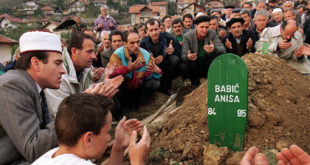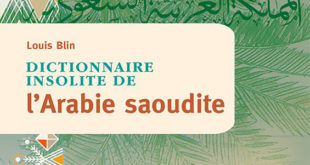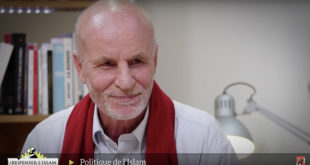Musulmans en France : Mr. Chairman, as you know, Muslims in France are victims of harmful media campaigns and a strong Islamophobic environment reflected in discriminatory bills. The media and certain politicians approach the conflict between Armenia and Azerbaijan in this context. For example, firstly, Christianity is absolutely tolerant, and secondly, Muslims are closed to other cultures by nature. However, when we look at your responsibilities as chairman of the State Committee on Religious Associations, we see the following: « Ensuring freedom of religion, promoting inter-religious dialogue, providing financial assistance to religious organizations. » Is there a real religious pluralism in Azerbaijan?

Mubariz Gurbanli : Azerbaijan which situated at the crossroads of Europe and Asia, on the historic Silk Road, is a secular state where Muslims, Christians and Jews have lived and prospered for centuries in peace and tranquility with others. This is why Azerbaijan has a tradition of respect and tolerance for different cultures and religions.
As is known, religious tolerance is an important factor in the development of the state and society. As Azerbaijan is a society historically rich in multicultural and tolerant traditions, the state also pursues a policy of strengthening these traditions. Non-Muslim – Christian, Jewish, Baha’i and other religious communities are integral part of our society. These communities play an active role in our country’s life. Their churches, synagogues, places of worship and monuments are fully protected by the State of Azerbaijan.

This policy pursued by Azerbaijan is international in nature. Thus, the Baku process, launched by Azerbaijan in 2008, is aimed at strengthening intercultural dialogue. The Baku Process is one of the unique platforms that bring together the Organization of Islamic Cooperation and the member States of the Council of Europe. The World Forum on Intercultural Dialogue, held every two years in Azerbaijan, has been recognized by resolutions of the UN General Assembly as a key global platform for promoting intercultural dialogue. In addition, the first European Games were held in Azerbaijan in 2015 and the IV Games of Islamic Solidarity in 2017. Azerbaijan also hosted the VII Global Forum of the UN Alliance of Civilizations. A clear indication of the above is the holding in Baku in 2010 and 2019 of summits of world religious leaders, which were attended by leaders and representatives of religions and faiths from dozens of countries on five continents, as well as hundreds of high-ranking representatives of influential international organizations.
It is no coincidence that two leaders of the Roman Catholic Church visited Azerbaijan. During their visits to Baku in 2002 Pope John Paul II and Pope Francis in 2016, they presented our country as an example of religious tolerance.
Musulmans en France : How is religious freedom guaranteed?
Mubariz Gurbanli : Freedom of religion or belief as well as all freedoms are protected and guaranteed by the state. Everyone has the right to profess individually or together with others any religion, to express and disseminate his opinions in connection with the attitude to religion.
It is prohibited to put any obstacles to the expression by any person of his religion, his participation in worship, religious rites and ceremonies or the study of religion.
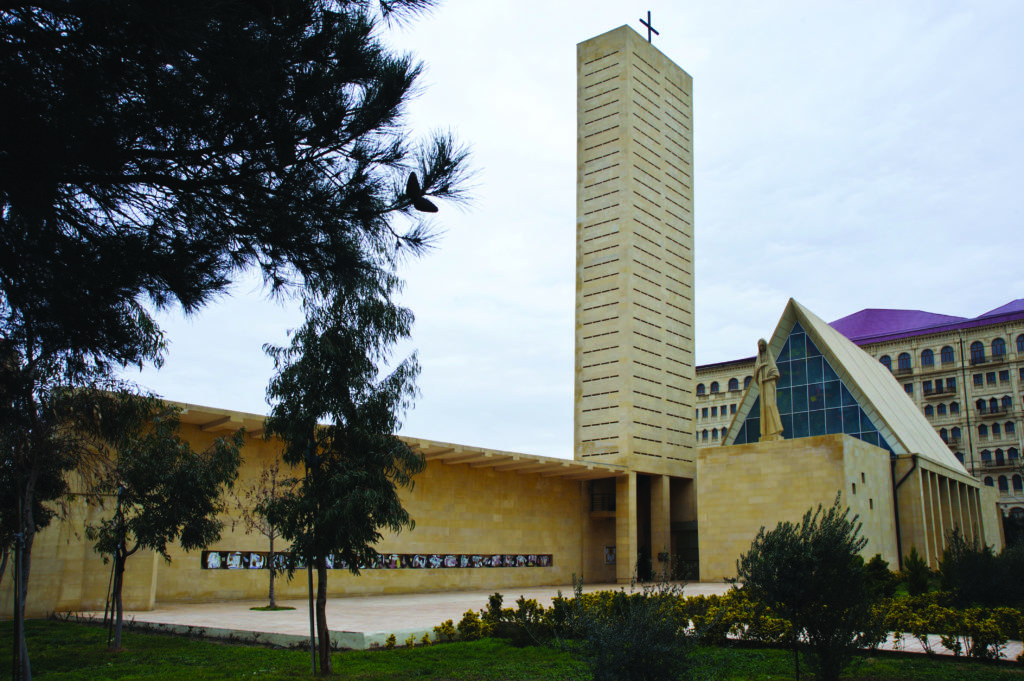
Freedom of religion may be limited only in cases stipulated by law and necessary in a democratic society, in the interests of public safety, to ensure public order, health or morals protection, as well as protection of the rights and freedoms of others.
In addition, all religious communities operating in the country (Muslim, Christian, Jewish, Baha’i, Krishna, etc.) are allocated funds from the state budget in order to further strengthen religious education and promote national and spiritual values.
At the same time, the State Committee, as the body implementing the state’s religious policy in the field of religion, periodically conducts educational activities, including projects implemented by religious communities themselves.
Musulmans en France : What meaning do you give to the word « secularism », which is part of your constitution?
Mubariz Gurbanli : From the legal point of view, according to the Constitution of the Republic of Azerbaijan, religion is separated from the state in our country and the state is a secular republic. However, the state is inseparable from its citizens, regardless of religion. In other words, the state always participates together with its citizens in the protection of national and spiritual values – restoration and construction of religious monuments, support for the organization of religious rites and ceremonies at a high level.
Freedom of conscience is enshrined in the Constitution of the Republic of Azerbaijan.
It is no coincidence that at the inauguration ceremony the President, along with the Constitution, which guarantees the principle of secularism, also touches on the Holy Koran, a symbol of our national and spiritual values, as the head of a country with a majority Muslim population.
At the same time, the President congratulates Muslim, Christian and Jewish religious communities on significant religious holidays – Ramadan, Gurban Bayram, Easter, Rosh Hashanah, and also takes part in the opening ceremonies of religious monuments. Or the Head of State attends an iftar ceremony with community leaders of all three religions during the holy month of Ramadan, which is not observed in other parts of the world.
Summing up the above, we can say that the balance between secularism and religious values in Azerbaijan, the golden mean has been found as a result of state policy.
Musulmans en France : Let us look more specifically at the Armenian problem. How are Azerbaijani citizens of Armenian origin integrated, do they participate in the life of society, can they freely practice, worship their beliefs? Are they not discriminated against?
Mubariz Gurbanli : Ensuring human and civil rights and freedoms and a decent standard of living for Azerbaijani citizens is the supreme goal of the State. All Azerbaijani citizens, irrespective of religion, race or nationality, are equal before the law, including Azerbaijani citizens of Armenian origin. I would like to note that more than 30,000 Armenians currently live in Azerbaijan and are represented in all areas of society.
They can also freely practice their religion. It is no coincidence that during the World Summit of Religious Leaders in Baku in 2010, Catholicos of All Armenians Karekin II himself visited the Armenian Church of Gregory in Baku, restored by the state, and did not hide his admiration by looking at the books kept there.
Thus, we can say with full confidence that, like all ethnic and religious minorities, our citizens of Armenian origin living in our country live in peace and security and perform their worship.
Musulmans en France : Was it the same in Armenia or in the Azerbaijani territories claimed by Armenians?
Mubariz Gurbanli : There has never been pressure on Armenians in Azerbaijan. Proof of this can be seen in the relations between the two countries during the Soviet era. In general, the country called Armenia is monoethnic, and Azerbaijanis living there were expelled from their homes in the late 1980s and early 1990s. Nagorno-Karabakh and the surrounding 7 regions, which you mentioned and unjustly claimed by the Armenians, are historical, ancient, as well as Azerbaijani lands from the point of view of international law. As you know, it has been under Armenian occupation for about 30 years.
All religious and historical monuments in the liberated territories will be protected by the state. For information I would like to note that the churches here are Albanian churches and has nothing to do with the Gregorian church. For example, in the XIX century, during the time of tsarist Russia, the Albanian church was abolished and given to the Armenian Catholicosate. However, the historical and legal successors to the Albanian Church, who still live in Azerbaijan, were surprised and have preserved their identity to this day. Thus, we would like to stress that the churches in the liberated territories are in fact temples of Caucasian Albania, which were Armenianized or destroyed.
Musulmans en France : French media says that the historical heritage of Armenians has been looted by Azerbaijanis for years. After the defeat of the Armenian armed forces, the treasures of the Armenian churches were taken to Armenia to protect them.
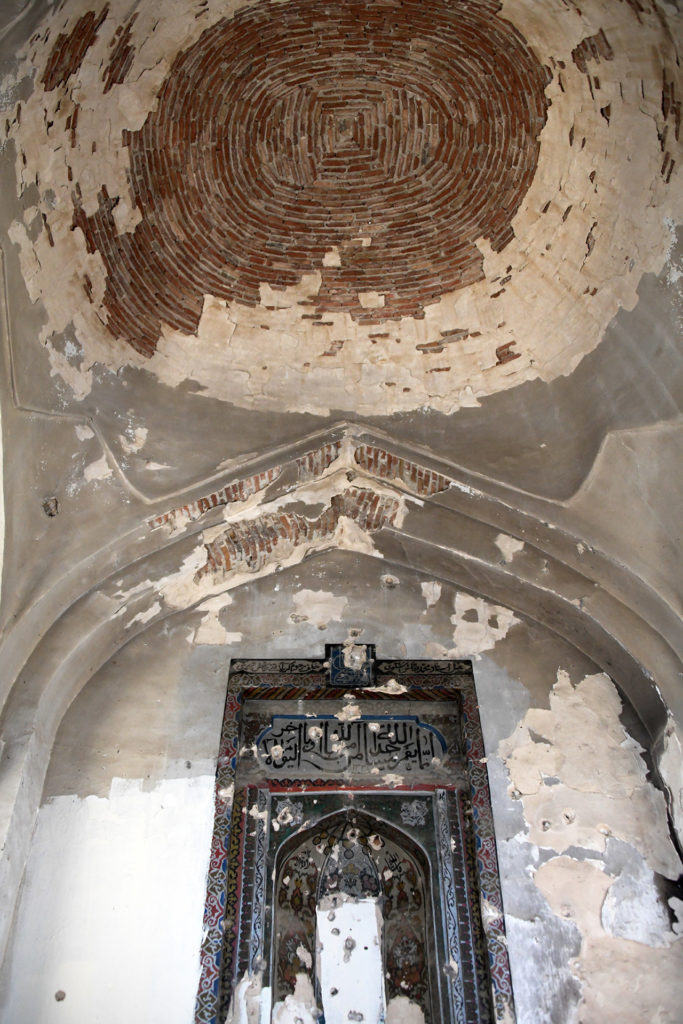
Mubariz Gurbanli : On the contrary, Azerbaijan’s historical, cultural and religious heritage in the occupied territories was destroyed. Thus existing 67 mosques, 192 shrines and 144 temples were destroyed. Of the mosques, only the Yukhari Govharaga mosque, under the guise of repair, was designed to erase Azerbaijan’s historical and religious heritage and present it as a Persian mosque.
As for Christian monuments, since Azerbaijan is located at the crossroads of Europe and Asia, on the historical Silk Road, Christianity began to spread in the country at the time of the disciples of Jesus Christ. Thus, to spread this religion, Apostles Bartholomew and Thaddeus, as well as disciples of Thaddeus, Elisha and Marin, arrived in the ancient Azerbaijani state of Caucasian Albania. As a result of the activities of the Elisha, the first Christian church in the Caucasus, known as the « Mother of Eastern Churches », was founded in the village of Kish in the region of modern Sheki. Later on, Christian communities also appeared in other parts of Caucasian Albania, thus the Albanian Church of Apostolic origin was formed. The Albanian Apostolic Church, which is part of the group of ancient Oriental churches, is one of the oldest churches not only in the Caucasus, but also in the entire Christian world. In addition to the Albanian churches, the state regularly renovates or builds Russian Orthodox churches. It is no coincidence that the Albanian church in the village of Nij in Gabala, the capital of ancient Caucasian Albania, was completely renovated and restored by the Heydar Aliyev Foundation on November 7 this year, despite the state of war.
As a result, 144 temples in the liberated territories are also Churches of Caucasian Albania, which were also armenized or destroyed. This can be easily seen on video and pictures posted on the Internet.
I want to note that Azerbaijan protects the Christian heritage not only within its borders, but also abroad. For example, the Heydar Aliyev Foundation has helped restore seven churches of X and XII centuries in the French Department of Orne, as well as the Notre Dame Church.
Musulmans en France : What is the reality of the cultural heritage in Nagorno-Karabakh?
Mubariz Gurbanli : As noted, the cultural and historical heritage of Nagorno-Karabakh belongs to Caucasian Albania, so it is the historical heritage of Azerbaijan, and like other protected Christian monuments, they will be restored and protected by the state. It should be noted that the people of Azerbaijan preserved this heritage during Tsarist Russia and the Soviet era.
Religious attributes taken by Armenians from churches in Karabakh are in fact attributes of Caucasian Albania (e.g. Khudavang monastery or Dadavang in Kelbajar district) and are, in particular, a continuation of their looting policy against Azerbaijan. The Azerbaijani side will therefore take the necessary legal steps at the international level and hold the other side accountable.
Musulmans en France : The Nagorno-Karabakh conflict ended with the capitulation of Armenian forces. Inspired by Armenian organizations operating in France, after the defeat of the Armenians, calls began to be made to deliver humanitarian aid only to Armenians facing the threat of physical destruction.
Mubariz Gurbanli : Ever since Azerbaijan launched its counter-offensive operations on 27 September, a ceasefire was agreed between Armenia and Azerbaijan three times, and each time the ceasefire was violated by Armenia.
Finally, a trilateral statement based on UN Security Council resolutions was signed on 10 November. The fulfillment of the requirements of the statement will allow assessing Armenia’s commitment to the peace process. Healing the wounds caused by decades of war will not be easy and will take time. The main thing is to stop all hostilities and take measures to establish peace in the region. We want to resolve this conflict peacefully. Only by ending the occupation of Azerbaijani territories in accordance with the relevant Security Council resolutions and ensuring the return of Azerbaijani IDPs to their homes will lasting peace and security in the region be established.
With the return of Azerbaijanis once forcibly expelled from the region, the state will guarantee all the rights and freedoms, equal and independent living of our citizens of Armenian origin in Nagorno-Karabakh according to Azerbaijani laws, as coexistence of different nations and religions in other parts of Azerbaijan.
I would like to emphasise that the conflict between Armenia and Azerbaijan is not a religious conflict and has never been one. This is an interstate conflict, which started with Armenia’s claims to our territories. Attempts to portray this as a religious conflict are doomed to failure, because Azerbaijan is a country where followers of different religions have lived in the world for centuries.
Musulmans en France : What will be the attitude of the Azerbaijani authorities and the Azerbaijani population towards the Armenians remaining in these regions? Are they threatened? Will the Azeri authorities take measures to guarantee their freedom and protection?
Mubariz Gurbanli : The Azerbaijani Constitution guarantees equal rights and protects the freedoms of every citizen regardless of nationality, religion or political affiliation. Azerbaijan is a responsible member of the international community, a member of many international organizations and observes treaties and conventions protecting fundamental rights, freedoms, cultural and religious heritage. The future of Nagorno-Karabakh will be determined by the development of its economic, cultural and human resources. The President of Azerbaijan has announced that a programme of rehabilitation and reconstruction of the liberated territories will be prepared. Azerbaijan is ready to ensure that the Azerbaijani and Armenian communities in Nagorno-Karabakh live together in peace, security and mutual respect.
Musulmans en France : How do you see religious co-existence and inter-religious cooperation in Azerbaijan in the coming years?
Mubariz Gurbanli : After the withdrawal of all Armenian armed forces from the occupied territories, all people of Armenian origin living in Nagorno-Karabakh will live as equal citizens of the Azerbaijani state.
Nagorno-Karabakh is an integral part of Azerbaijan. It will remain as part of Azerbaijan as any other region. In the South Caucasus, as President Ilham Aliyev said, we can create a new format of cooperation between Azerbaijan, Georgia and Armenia, which existed during the Soviet era. We had friendly relations. We lived together.
Musulmans en France : What would you like to tell politicians, the media, and also French religious leaders?
Mubariz Gurbanli : As a co-chair of the OSCE Minsk Group, the position of France has to be impartial and unbiased however it’s biased and partial. Especially recently, the French Senate’s recommendation to the government to recognize the so-called « republic » has disappointed us, and we strongly condemn it.
We call on everyone to be fair and respect international law regarding Azerbaijan. Because if you are fair and respect the principles of international law, you will support Azerbaijan. Because our work is the work of truth.
Karabakh is Azerbaijan!
 Musulmans en France L'actualité des musulmanes et musulmans en France
Musulmans en France L'actualité des musulmanes et musulmans en France
